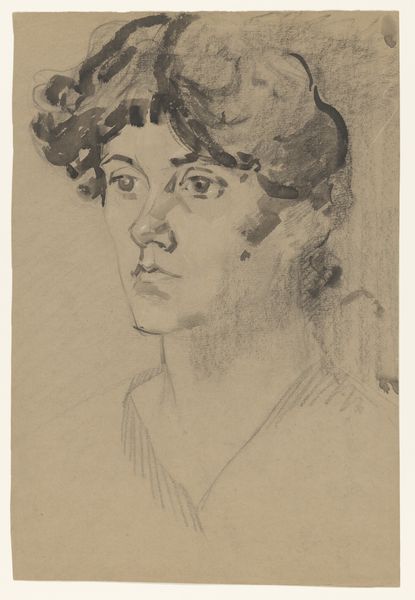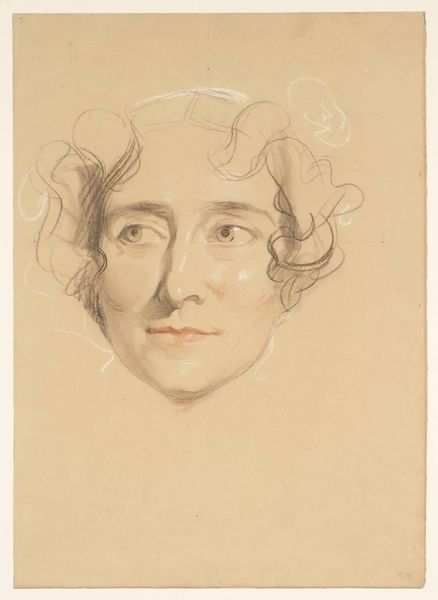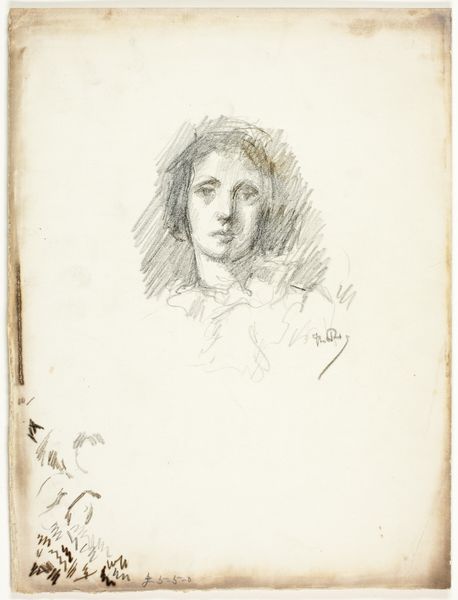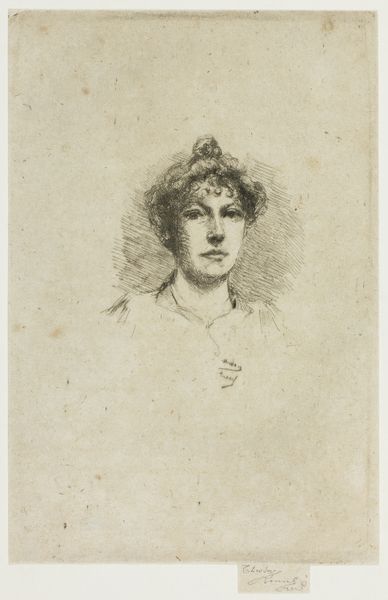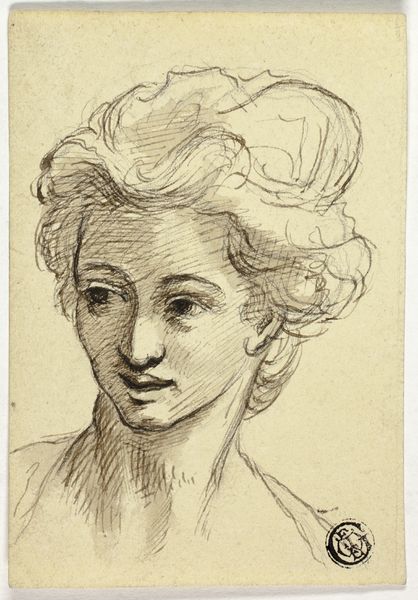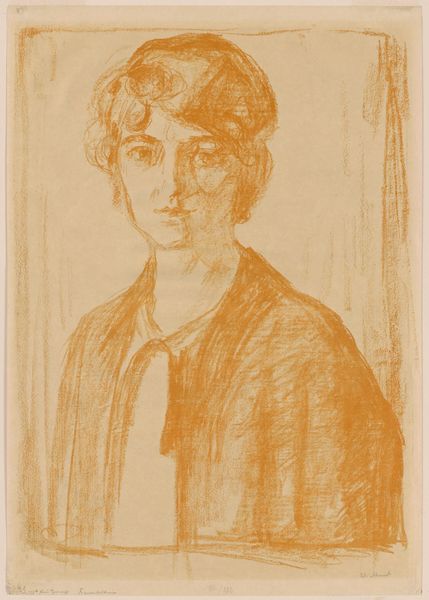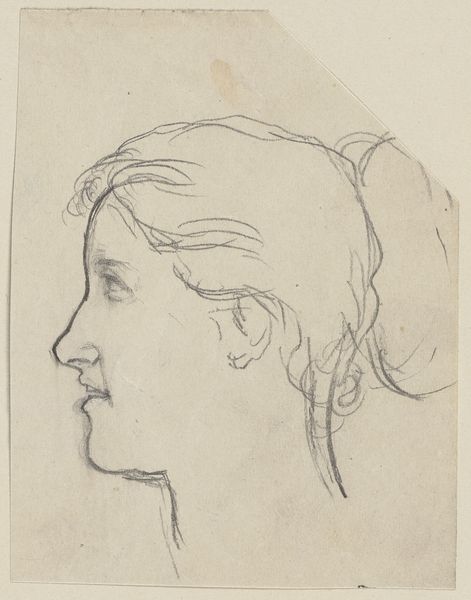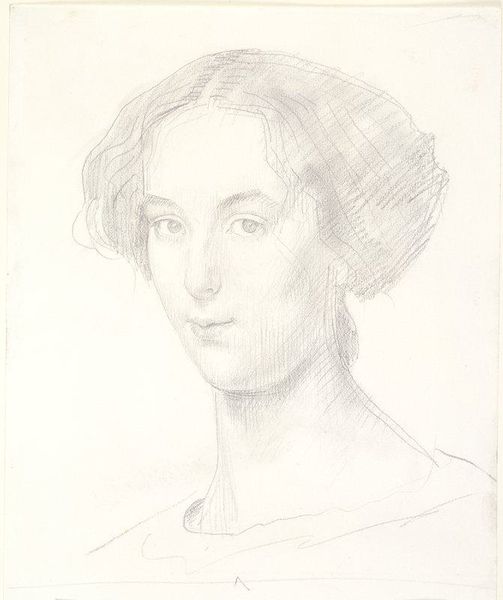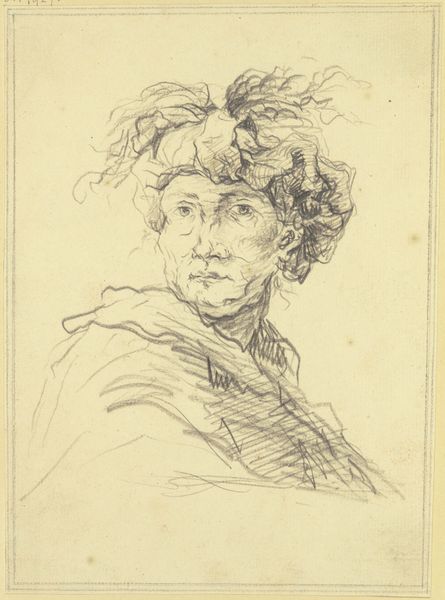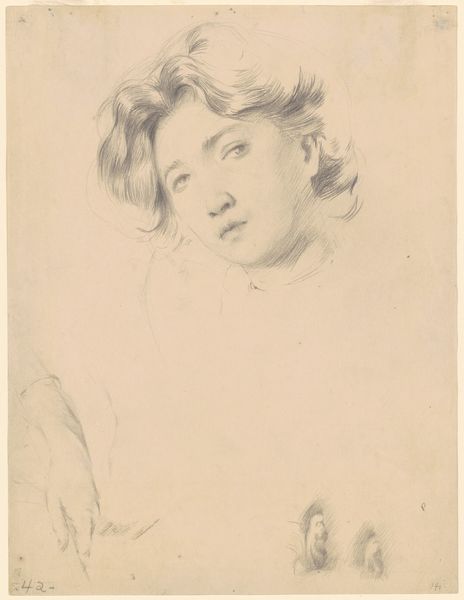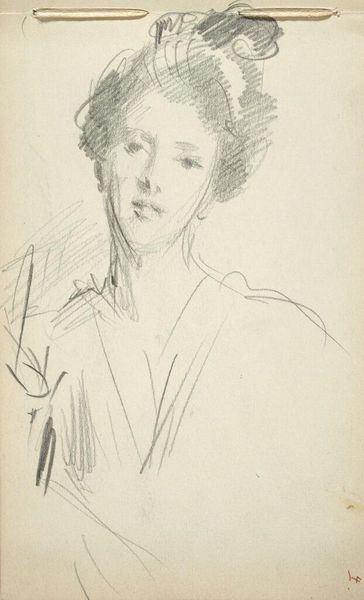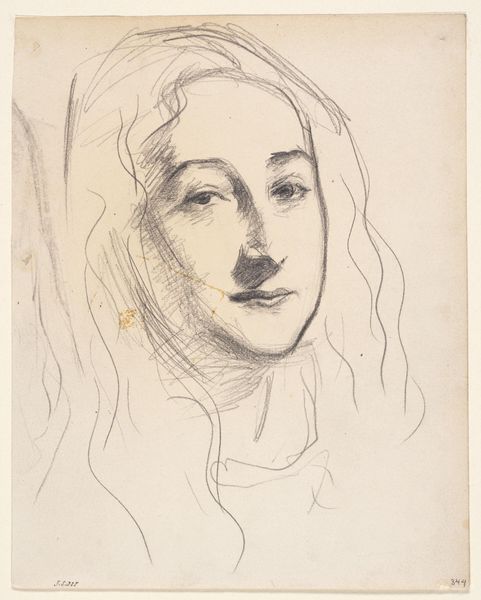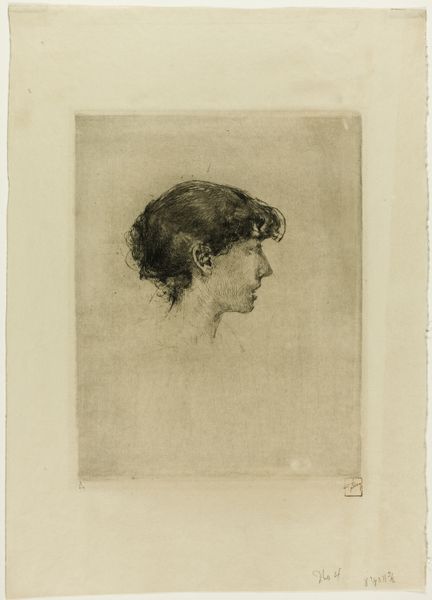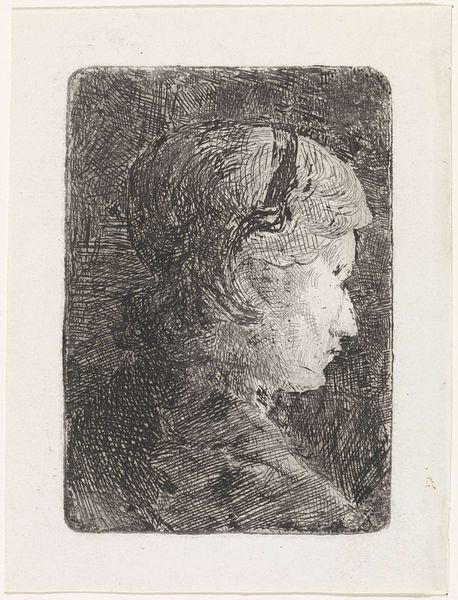
drawing, paper, pencil, graphite
#
portrait
#
pencil drawn
#
drawing
#
facial expression drawing
#
light pencil work
#
head
#
face
#
pencil sketch
#
figuration
#
paper
#
form
#
portrait reference
#
pencil drawing
#
sketch
#
pencil
#
expressionism
#
line
#
graphite
#
animal drawing portrait
#
nose
#
portrait drawing
#
portrait art
#
female-portraits
#
fine art portrait
Copyright: Public domain
Editor: This is Edvard Munch's "Berlin Girl," created in 1906, a drawing in pencil. It feels like a fleeting impression, almost as if she's fading away. What do you see in this piece? Curator: I see a haunting echo of idealized female figures, particularly those that populated the artistic landscape during the late 19th and early 20th centuries. But Munch, ever the iconoclast, twists the familiar. Note how the loose, almost frantic lines create a sense of unease, subverting the typical composure associated with portraiture of women at the time. Her hair seems to almost devour her face, wouldn’t you agree? What does that suggest to you? Editor: That’s a fascinating observation! Maybe that she’s overwhelmed, her identity consumed by societal expectations of beauty or decorum? It definitely doesn't feel like a celebration of beauty, but rather a commentary on its darker aspects. Curator: Precisely. Think of the Pre-Raphaelites, for example, and their often languid, ethereal depictions of women. Munch’s "Berlin Girl" challenges that tradition by portraying a figure stripped bare, emotionally and artistically. Even the medium, a simple pencil sketch, contributes to this rawness. Can you imagine how this imagery might resonate in Berlin at that time, a rapidly changing, anxious urban environment? Editor: I can see how it would. This image feels distinctly modern, questioning traditional representations rather than upholding them. So much emotional weight carried in a few pencil strokes! Curator: Indeed. It highlights how the symbolic language of art is constantly being redefined and reinterpreted in response to the currents of its time. A girl's portrait that holds the history of art, her story, the city’s temperament and our reflection in it. Editor: I will never see pencil the same way again! Curator: I am so glad to have illuminated this picture for you.
Comments
No comments
Be the first to comment and join the conversation on the ultimate creative platform.
